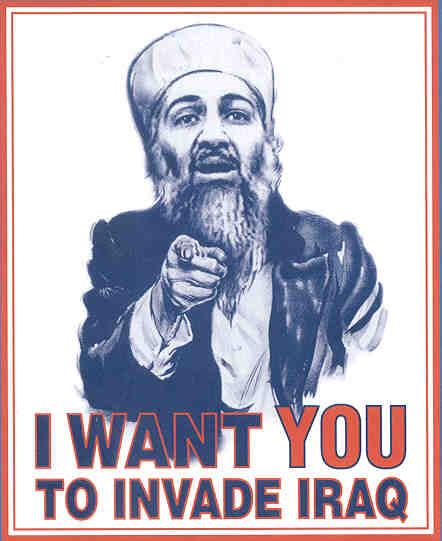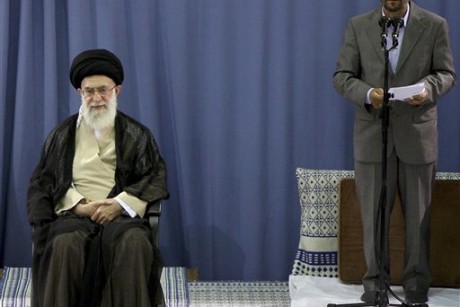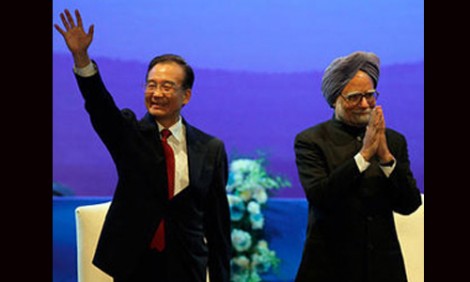A dictatorship without a dictator
By Sami Moubayed
DAMASCUS - News of the United States' formal withdrawal from Iraq is receiving mediocre coverage in mainstream Arab media. On the popular al-Arabiya and al-Jazeera television networks, for example, Iraqi news come forth on the list, after Syria, Egypt, Libya and Yemen.
In popular pan-Arab dailies, like Asharq Alawsat, Syria rather than Iraq was the main headline. Although glad to see the Americans leave after nearly nine years - ending a very long and unwelcomed stay - the Arab masses feel that they have too much on their plates in countries experiencing the Arab Spring to mind about Iraqi affairs any longer.
The same applies to anything related to the Palestinians, who for over 60 years were the Arab world’s main - and only - obsession. Too much effort, time, money and tears have been shed for Iraq during the years 2003-2011 and on Palestine since 1948.
Now it is time to look elsewhere, the Arab street is saying, arguing that Iraq will only rise from the ashes once it is surrounded by democracies in Saudi Arabia, Syria, Jordan and Iran. For Iraq to succeed, the Arab Spring needs to succeed throughout the Arab world, and at one point reach Iraq as well.
Only then will Iraq enjoy real democracy. Anti-regime protests did take place in Iraq in March this year, prompting Prime Minister Nuri al-Maliki to announce that he would not seek re-election for a third term in 2014.
Some Sunni provinces like Salahudine, once a hotbed for the insurgency, are already planning for a Sunni uprising - or a "Sunni Spring" - aimed at toppling Iran's proxies in Baghdad, in early 2012. A democratic Iraq in a neighborhood riddled with military dictatorships would simply not work, because Arab and Iranian dictatorships will always try to bring it down, as they did with Lebanon for more than 40 years.
United States Defense Secretary Leon Panetta flew into Baghdad on Thursday to participate in a ceremony that officially ended the war. The US flag has been lowered and folded away, declaring an end to the US occupation that has lasted for eight years, eight months and 25 days.
The last commander of US forces in Iraq, General Lloyd J Austin III, has flown out with the last few members of his staff.
There were no bold statements like that of president George W Bush's 2003 "Mission accomplished", which proved so premature. It has been a quiet withdrawal, dwarfed no doubt by the Arab Spring.
Speaking from Afghanistan before landing in Baghdad, Panetta pondered on his country's war in Iraq:
Although some Republicans have criticized the move, the majority of Americans support it. Speaking to troops that just returned from Iraq this week, Obama hailed the "extraordinary achievement" of US troops, saying that they were returning home "with heads held high". He added, "The war in Iraq will soon belong to history, and your service belongs to the ages."
Obama failed to say anything serious about the 4,487 American lives lost in Iraq, and the more than a trillion dollars in taxpayers' money spent on military operations.
Obama ignored the fundamental fact that when the Americans went into Iraq almost nine years ago, their purpose was to find Saddam Hussein's weapons of mass destruction, topple the Iraq dictator and make the Arab world a safer place for democracy.
Although democracy is ripping through the Arab world today, Iraq has had nothing to do with it and the desired domino effect never happened. Saddam was indeed toppled, but post-Saddam politicians have failed to establish themselves as real democrats.
In fact, the Iraq of today looks and sounds like a democracy, but it is a sugar-coated dictatorship of religiously-driven politicians, yet with no dictator.
Seculars are persecuted in today's Iraq, Christians have been forced to become refugees, Ba'athists are banned from holding public office, and in some places like the Shi'ite enclave of Sadr City in Baghdad, a mini-theocracy prevails, based on the Iranian model.
The economy is a shambles, armed men roam the streets at night seeking trouble with traditional enemies. No accountability has taken place for Iraqis who killed fellow Iraqis since downfall of Saddam in 2003. Not a single official from Maliki's Dawa Party, for example, has been brought to court. The number of Iraqi deaths, according to the Americans, "exceeds 100,000", whereas Iraqis put the number at over a million. No democracy can be taken seriously in such horrific conditions.
The date for full withdrawal was supposed to be December 31, as stated by a 2008 agreement between Bush and Maliki. That agreement was signed exactly two years ago, when as the world so famously remembers, Iraqi journalist Muntazer al-Zaidi threw both his shoes at Bush during a Baghdad press conference on December 14, saying: "This is a farewell kiss from the people of Iraq, you dog!"
Anti-Americanism was high, both back then and now, but no shoe-throwing is taking place. Only in Fallujah, once a hotbed for the Sunni insurgency, were American flags burned by angry Iraqis honoring their dead. Most Iraqis are just glad to see an end to the US occupation, relieved that the region is too worked up with its own mess to send proxy messages to the Americans, via Iraq.
In different times, Iran, Saudi Arabia and Syria would all have been tremendously busy with Iraq, planning for "the day after" scenario. These countries believe that a vacuum will emerge now that the Americans have left. Maliki cannot run the country on his own, and his ministers, police, army and security services are too weak to deliver when it comes to nation-building.
The vacuum can only be filled by Iran or Saudi Arabia, which respectively control the Shi'ite and Sunni streets. Iran cannot venture into Sunni territory, and Saudi Arabia has no influence whatsoever with heavyweight Iraqi Shi'ites like Ammar al-Hakim, Muqtada al-Sadr and Maliki.
The only country that has inter-community influence among both sects is Syria. It has the ear of Muqtada, yet it can also strongly influence Tarek al-Hashemi of the Iraqi Islamic Party.
But Syria, Saudi Arabia and Iran are all busy with their own problems, explaining why incendiary rhetoric is at an all-time low in Iraq, as are suicide bombings and targeted assassinations.
Saudi Arabia's King Abdullah is ill, Prince Nayef is slowly adapting to the new job as crown prince and busy getting the House of Saud in order, preparing for his own ascent to the throne. Unprecedented disturbances were recorded in November in al-Qateef, an oil-rich district inhabited almost completely by Shi'ites, where 10 people were killed.
Syria is immersed with its own bloody uprising, which is now entering its tenth month, and its government is facing increased isolation and sanctions by the US, the European Union and the Arab League.
Iran is entangled in its own power struggle, between Supreme Leader Ayatollah Ali Khamenei and President Mahmud Ahmadinejad.
As the Arabs and Iranians look the other way, Iraqis are finally getting the chance to sort out their differences without outside interference, funds and dictates.
Unlike Saudi Arabia and Syria, however, Iran will not let Iraq slip out of its control anytime soon. The toppling of Saddam was a blessing for the Iranians, ushering in a wide array of Iran-backed politicians to senior office in Baghdad. Never in his wildest dreams would Khamenei have imagined that one day trusted Iranian proteges like Ibrahim al-Jaafari and Maliki would become consecutive prime ministers in Iraq.
Their presence perpetuates Iranian influence in Iraqi politics, and so does the heavyweight presence of powerful players like the Fadila Party, the Da'wa Party, the Sadrists, the Badr Brigade and the powerful Supreme Iraqi Islamic Council.
The Iranians are even trying to install Ayatollah Mahmud Hashemi Shahroudi, a former Iranian judiciary chief, in the holy Iraqi city of Najaf. If they succeed, they will gain control of the religious Shi'ite establishments in Iraq, just as they have control of the political establishments through Maliki.
Shahroudi is very close to Khamenei and would serve as his eyes and ears.
As Iran prepares to re-flex its muscles in Iraq, and the US heads for the exit, ordinary Iraqis are asking themselves plenty of questions. One is: "Had it not been for the 2003 war, is there the slightest chance in a million that we would have rid ourselves of Saddam Hussein?" The answer is no. Probably had there been no war, Iraqis would have been stuck with Saddam, although he might have bequeathed power to his son Uday.
The second question is: "Looking back, was it worth it?" Again, the obvious answer - from an Iraqi perspective - is no. Human life was wasted under Saddam and equally wasted under the Americans. The current leaders of Iraq are mini-dictators, lacking Saddam's brutality no doubt, but they are as arrogant, stubborn and selfish as the former strongman.
Pro-Saddam Iraqis argue that it's different when an occupying force is killing Iraqis. Yet murder is murder; there are no double standards for it, whether committed under the watch of Saddam, Bush or Maliki.
The past nine years mark a very interesting chapter in Iraqi history. Living with the dictator was a nightmare and getting rid of him in such a manner was also a nightmare.
The price has been too high for day-to-day Iraqis, and it will take an entire generation for memories of the atrocities to be erased
But at least Iraqis can now hold their heads high - they are done with both Saddam and the Americans. One day, not too far from now, they will get rid of Maliki as well. Only then - and when outside meddling stops - will Iraqis say: "Mission accomplished."
Sami Moubayed is a university professor, political analyst and Editor-in-Chief of Forward Magazine in Syria.
http://www.atimes.com/atimes/Middle_East/ML17Ak03.html
Intervention ends with scarcely a whimper
By Jim Lobe
WASHINGTON - When the United States formally ended its eight-and-a-half year military adventure in Iraq on Thursday with a flag-lowering ceremony presided over by Defense Secretary Leon Panetta Baghdad, hardly anyone here seemed to notice, let alone mark the occasion in a special manner.
Similarly, earlier this week, when US President Barack Obama hosted Iraqi Prime Minister Nuri al-Maliki at the White House to discuss - apparently rather inconclusively - the future strategic relationship between the two countries, hardly anyone paid attention.
Perhaps people here would just as soon forget as a bad dream what the former head of the National Security Agency, the late Lieutenant General William Odom, called in 2005 - just two-and-a-half years after the US invasion - "the greatest strategic disaster in United States history".
So long Lily Pads . .
The war's official price tag of approximately one trillion dollars over the eight years ignores the far greater indirect costs.
Joseph Stiglitz, winner of the Nobel Prize for Economics, has estimated total costs of the Iraq war on the US economy, including the costs of health care for veterans, at more than three trillion dollars, a significant amount given the difficult economic straits in which this country finds itself.
In addition, the US suffered an immeasurable loss in international credibility. The stated justifications for going to war - Saddam Hussein's ties to al-Qaeda, weapons of mass destruction, a rapidly developing nuclear weapons program - proved utterly unfounded, while the mightiest, highest-tech war machine in history failed to suppress a variety of rag-tag insurgencies.
http://www.atimes.com/atimes/Middle_East/ML17Ak04.html
By Sami Moubayed
DAMASCUS - News of the United States' formal withdrawal from Iraq is receiving mediocre coverage in mainstream Arab media. On the popular al-Arabiya and al-Jazeera television networks, for example, Iraqi news come forth on the list, after Syria, Egypt, Libya and Yemen.
In popular pan-Arab dailies, like Asharq Alawsat, Syria rather than Iraq was the main headline. Although glad to see the Americans leave after nearly nine years - ending a very long and unwelcomed stay - the Arab masses feel that they have too much on their plates in countries experiencing the Arab Spring to mind about Iraqi affairs any longer.
The same applies to anything related to the Palestinians, who for over 60 years were the Arab world’s main - and only - obsession. Too much effort, time, money and tears have been shed for Iraq during the years 2003-2011 and on Palestine since 1948.
Now it is time to look elsewhere, the Arab street is saying, arguing that Iraq will only rise from the ashes once it is surrounded by democracies in Saudi Arabia, Syria, Jordan and Iran. For Iraq to succeed, the Arab Spring needs to succeed throughout the Arab world, and at one point reach Iraq as well.
Only then will Iraq enjoy real democracy. Anti-regime protests did take place in Iraq in March this year, prompting Prime Minister Nuri al-Maliki to announce that he would not seek re-election for a third term in 2014.
Some Sunni provinces like Salahudine, once a hotbed for the insurgency, are already planning for a Sunni uprising - or a "Sunni Spring" - aimed at toppling Iran's proxies in Baghdad, in early 2012. A democratic Iraq in a neighborhood riddled with military dictatorships would simply not work, because Arab and Iranian dictatorships will always try to bring it down, as they did with Lebanon for more than 40 years.
United States Defense Secretary Leon Panetta flew into Baghdad on Thursday to participate in a ceremony that officially ended the war. The US flag has been lowered and folded away, declaring an end to the US occupation that has lasted for eight years, eight months and 25 days.
The last commander of US forces in Iraq, General Lloyd J Austin III, has flown out with the last few members of his staff.
There were no bold statements like that of president George W Bush's 2003 "Mission accomplished", which proved so premature. It has been a quiet withdrawal, dwarfed no doubt by the Arab Spring.
Speaking from Afghanistan before landing in Baghdad, Panetta pondered on his country's war in Iraq:
In many ways, I think we can all take some satisfaction, regardless of whether you are for or against how we got into Iraq. We are giving Iraq an opportunity to be able to govern itself and to secure itself into the future, and to enjoy, hopefully, the benefits of a democracy. It won't be easy. There will be challenges. They'll face the challenges of terrorism. They'll face the challenges of those that would want to divide that country. They'll face the challenges, the test of democracy.
President Barack Obama, who campaigned for office three years ago pledging to bring US troops back home, echoed a similar argument, saying that the US leaves behind a "sovereign, stable and self-reliant Iraq". Although some Republicans have criticized the move, the majority of Americans support it. Speaking to troops that just returned from Iraq this week, Obama hailed the "extraordinary achievement" of US troops, saying that they were returning home "with heads held high". He added, "The war in Iraq will soon belong to history, and your service belongs to the ages."
Obama failed to say anything serious about the 4,487 American lives lost in Iraq, and the more than a trillion dollars in taxpayers' money spent on military operations.
Obama ignored the fundamental fact that when the Americans went into Iraq almost nine years ago, their purpose was to find Saddam Hussein's weapons of mass destruction, topple the Iraq dictator and make the Arab world a safer place for democracy.
Although democracy is ripping through the Arab world today, Iraq has had nothing to do with it and the desired domino effect never happened. Saddam was indeed toppled, but post-Saddam politicians have failed to establish themselves as real democrats.
In fact, the Iraq of today looks and sounds like a democracy, but it is a sugar-coated dictatorship of religiously-driven politicians, yet with no dictator.
Seculars are persecuted in today's Iraq, Christians have been forced to become refugees, Ba'athists are banned from holding public office, and in some places like the Shi'ite enclave of Sadr City in Baghdad, a mini-theocracy prevails, based on the Iranian model.
The economy is a shambles, armed men roam the streets at night seeking trouble with traditional enemies. No accountability has taken place for Iraqis who killed fellow Iraqis since downfall of Saddam in 2003. Not a single official from Maliki's Dawa Party, for example, has been brought to court. The number of Iraqi deaths, according to the Americans, "exceeds 100,000", whereas Iraqis put the number at over a million. No democracy can be taken seriously in such horrific conditions.
The date for full withdrawal was supposed to be December 31, as stated by a 2008 agreement between Bush and Maliki. That agreement was signed exactly two years ago, when as the world so famously remembers, Iraqi journalist Muntazer al-Zaidi threw both his shoes at Bush during a Baghdad press conference on December 14, saying: "This is a farewell kiss from the people of Iraq, you dog!"
Anti-Americanism was high, both back then and now, but no shoe-throwing is taking place. Only in Fallujah, once a hotbed for the Sunni insurgency, were American flags burned by angry Iraqis honoring their dead. Most Iraqis are just glad to see an end to the US occupation, relieved that the region is too worked up with its own mess to send proxy messages to the Americans, via Iraq.
In different times, Iran, Saudi Arabia and Syria would all have been tremendously busy with Iraq, planning for "the day after" scenario. These countries believe that a vacuum will emerge now that the Americans have left. Maliki cannot run the country on his own, and his ministers, police, army and security services are too weak to deliver when it comes to nation-building.
The vacuum can only be filled by Iran or Saudi Arabia, which respectively control the Shi'ite and Sunni streets. Iran cannot venture into Sunni territory, and Saudi Arabia has no influence whatsoever with heavyweight Iraqi Shi'ites like Ammar al-Hakim, Muqtada al-Sadr and Maliki.
The only country that has inter-community influence among both sects is Syria. It has the ear of Muqtada, yet it can also strongly influence Tarek al-Hashemi of the Iraqi Islamic Party.
But Syria, Saudi Arabia and Iran are all busy with their own problems, explaining why incendiary rhetoric is at an all-time low in Iraq, as are suicide bombings and targeted assassinations.
Saudi Arabia's King Abdullah is ill, Prince Nayef is slowly adapting to the new job as crown prince and busy getting the House of Saud in order, preparing for his own ascent to the throne. Unprecedented disturbances were recorded in November in al-Qateef, an oil-rich district inhabited almost completely by Shi'ites, where 10 people were killed.
Syria is immersed with its own bloody uprising, which is now entering its tenth month, and its government is facing increased isolation and sanctions by the US, the European Union and the Arab League.
Iran is entangled in its own power struggle, between Supreme Leader Ayatollah Ali Khamenei and President Mahmud Ahmadinejad.
As the Arabs and Iranians look the other way, Iraqis are finally getting the chance to sort out their differences without outside interference, funds and dictates.
Unlike Saudi Arabia and Syria, however, Iran will not let Iraq slip out of its control anytime soon. The toppling of Saddam was a blessing for the Iranians, ushering in a wide array of Iran-backed politicians to senior office in Baghdad. Never in his wildest dreams would Khamenei have imagined that one day trusted Iranian proteges like Ibrahim al-Jaafari and Maliki would become consecutive prime ministers in Iraq.
Their presence perpetuates Iranian influence in Iraqi politics, and so does the heavyweight presence of powerful players like the Fadila Party, the Da'wa Party, the Sadrists, the Badr Brigade and the powerful Supreme Iraqi Islamic Council.
The Iranians are even trying to install Ayatollah Mahmud Hashemi Shahroudi, a former Iranian judiciary chief, in the holy Iraqi city of Najaf. If they succeed, they will gain control of the religious Shi'ite establishments in Iraq, just as they have control of the political establishments through Maliki.
Shahroudi is very close to Khamenei and would serve as his eyes and ears.
As Iran prepares to re-flex its muscles in Iraq, and the US heads for the exit, ordinary Iraqis are asking themselves plenty of questions. One is: "Had it not been for the 2003 war, is there the slightest chance in a million that we would have rid ourselves of Saddam Hussein?" The answer is no. Probably had there been no war, Iraqis would have been stuck with Saddam, although he might have bequeathed power to his son Uday.
The second question is: "Looking back, was it worth it?" Again, the obvious answer - from an Iraqi perspective - is no. Human life was wasted under Saddam and equally wasted under the Americans. The current leaders of Iraq are mini-dictators, lacking Saddam's brutality no doubt, but they are as arrogant, stubborn and selfish as the former strongman.
Pro-Saddam Iraqis argue that it's different when an occupying force is killing Iraqis. Yet murder is murder; there are no double standards for it, whether committed under the watch of Saddam, Bush or Maliki.
The past nine years mark a very interesting chapter in Iraqi history. Living with the dictator was a nightmare and getting rid of him in such a manner was also a nightmare.
The price has been too high for day-to-day Iraqis, and it will take an entire generation for memories of the atrocities to be erased
But at least Iraqis can now hold their heads high - they are done with both Saddam and the Americans. One day, not too far from now, they will get rid of Maliki as well. Only then - and when outside meddling stops - will Iraqis say: "Mission accomplished."
Sami Moubayed is a university professor, political analyst and Editor-in-Chief of Forward Magazine in Syria.
http://www.atimes.com/atimes/Middle_East/ML17Ak03.html
Intervention ends with scarcely a whimper
By Jim Lobe
WASHINGTON - When the United States formally ended its eight-and-a-half year military adventure in Iraq on Thursday with a flag-lowering ceremony presided over by Defense Secretary Leon Panetta Baghdad, hardly anyone here seemed to notice, let alone mark the occasion in a special manner.
Similarly, earlier this week, when US President Barack Obama hosted Iraqi Prime Minister Nuri al-Maliki at the White House to discuss - apparently rather inconclusively - the future strategic relationship between the two countries, hardly anyone paid attention.
Perhaps people here would just as soon forget as a bad dream what the former head of the National Security Agency, the late Lieutenant General William Odom, called in 2005 - just two-and-a-half years after the US invasion - "the greatest strategic disaster in United States history".
So long Lily Pads . .
The war's official price tag of approximately one trillion dollars over the eight years ignores the far greater indirect costs.
Joseph Stiglitz, winner of the Nobel Prize for Economics, has estimated total costs of the Iraq war on the US economy, including the costs of health care for veterans, at more than three trillion dollars, a significant amount given the difficult economic straits in which this country finds itself.
In addition, the US suffered an immeasurable loss in international credibility. The stated justifications for going to war - Saddam Hussein's ties to al-Qaeda, weapons of mass destruction, a rapidly developing nuclear weapons program - proved utterly unfounded, while the mightiest, highest-tech war machine in history failed to suppress a variety of rag-tag insurgencies.
http://www.atimes.com/atimes/Middle_East/ML17Ak04.html




Comment